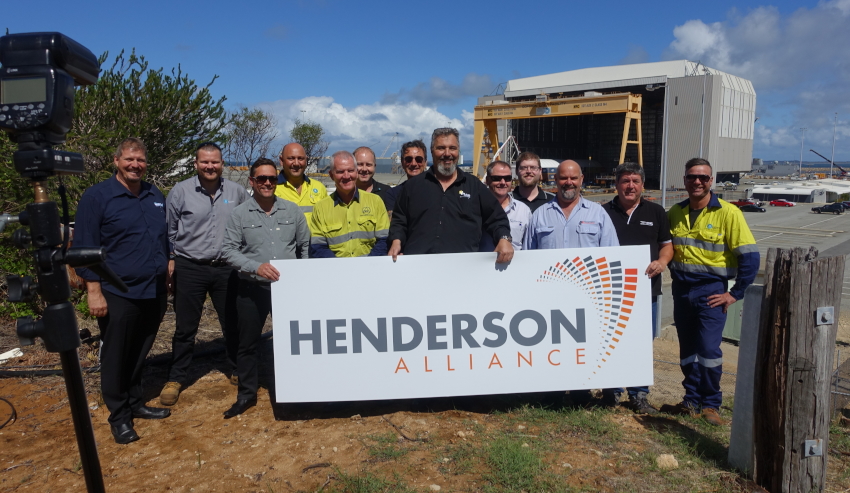The recently-formed Henderson Alliance has expressed its concern about the supply chain process for future naval industry projects, amid fears SMEs may miss out on a share of the work.
Speaking to Defence Connect, IKAD Engineering's Darryl Hockey said "there's a number of them [Alliance members] that are getting nervous — if that's the word — as to whether or not they'll ultimately end up being able to get a share of the action when the contracts actually come through."
Ten of the 12 Offshore Patrol Vessels (OPVs) are scheduled to be built in Western Australia from 2020, with three companies tendering for the contract: Dutch firm Damen, and Germany companies Fassmer and Lürssen Werft GmbH & Co. KG.
ASC and Civmec have partnered with Lürssen and Damen for their bids, while Fassmer has teamed with Austal.
But Hockey said the Alliance fears the path to the supply chain is flawed.
"More and more information is coming out, everyone’s been asked to go and register with the shortlisted firms that are going to be building the ships and so everyone’s been doing that," said Hockey.
"And of course you’ve got the three short-listed ones and ultimately one of them will be the winner but everyone’s running around registering with each of them and those companies have done a pretty good job with their small business engagement program, the supply briefings, the roadshows, and what you like."
While Hockey praised the tenderers and their partners for their small business engagement programs, he said the Alliance believes it is more likely the SMEs will come off second best to larger companies.
"So they’ve done that and we believe they’ve done that properly and the best they can but effectively what they’ve done is they’ve got everyone to register and they got this database now of all this small businesses and all their capabilities but what’ll actually happen in reality, eventually they’ll partner up with a very big company in Australia on the waterside, whether it’s Austal or Civmec or ASC, whoever it might be, they’ll find an Australian partner who in turn will do probably one of two things.
"One is do as much work in-house as they possibly can and secondly, they may start sub-contracting to other parties so those sub-contractors could well be just their normal supply chain, the one they’ve got established business relationships with and the confidence with and they’ve dealt with them for years.
The need for strong government provisions in projects such as this has come up as a result of this process, with Hockey saying the government needs to be aware of the limitations in the current process.
"Now, the government has sort of said ‘well look, we want local content looked after here. Could you make sure that you utilise this database of all these people that have registered their interest?’. And those companies might well go 'well yeah, we’ve looked at that database and there’s 732 different companies. However, we already have these people we’ve got established relationships with and we’re quite happy with them'.
"So therefore, they might not end up using the database. And I guess that’s the underlying concern there from the smaller businesses. Whilst everyone’s saying the right thing about engaging with small-to-medium enterprises, perhaps in reality it might not work out like that."
Companies that make up the alliance include Host Group, IKAD Engineering, L2S Engineering, Marine Construction Services, Marine Inspection Services, Marine Technicians Australia, Mackenzie Marine and Towage, PMC Group, Pozztech and Weldtech.
The Alliance has said its three main purposes are to:






